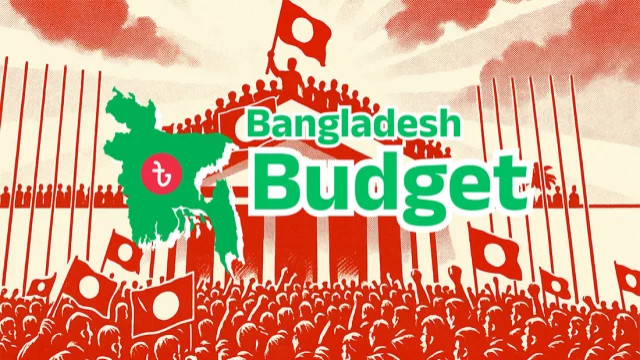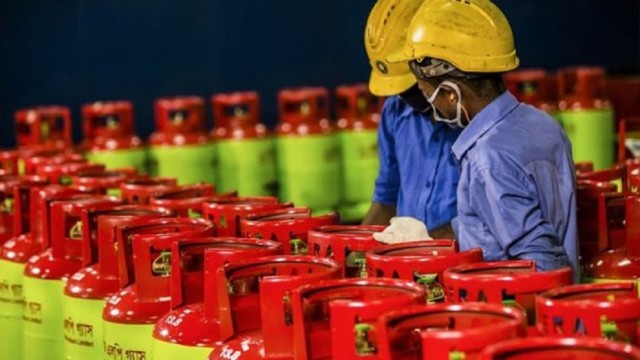Dhaka, Jun 03 (V7N) – The proposed national budget for FY 2025–26 has placed the spotlight once again on price fluctuations that directly affect the lives of ordinary citizens. As the government moves to boost revenue by withdrawing tax exemptions and adjusting duty rates, the prices of several essential and consumer goods are expected to rise—though some sectors, such as agriculture and eco-friendly products, may see relief.
Products Likely to See Price Hikes
In an effort to raise an additional Tk 4,000 crore in revenue, the government is set to remove various tax exemptions, particularly in domestic industries. This will likely lead to price increases in the following areas:
-
Consumer Electronics & Appliances: Mobile phones, electronics, home appliances, toiletries, LPG cylinders, elevators, and air conditioner compressors.
-
Construction Materials: Due to an increase in duty from 7.5% to 10%, prices of duplex boards, coated paper, cement, sheets, MS products, and steel are expected to rise.
-
Textile Industry: This sector faces significant pressure. VAT on cotton and synthetic fiber production is proposed to rise from Tk 3/kg to Tk 5/kg. Moreover, a 2% advance income tax may be introduced on cotton imports, removing the long-standing zero-tax benefit.
-
Digital Economy:
-
VAT on online product sales may jump from 5% to 15%, burdening e-commerce businesses.
-
A 10% supplementary duty will be imposed on OTT and online streaming platforms, increasing subscription costs.
-
-
Hardware and Tools: VAT on items such as screws, nuts, bolts, electrical line components, and blades may increase from 5% to 7.5%.
-
Paper and Publishing: VAT on paper may be doubled from 7.5% to 15%, pushing up costs in the printing and publishing industries.
-
Mobile Phone Manufacturing: VAT rates currently at 2%, 5%, and 7.5% may rise to 4%, 7.5%, and 10% for the next two years, increasing the cost of locally manufactured phones.
Products Likely to See Price Drops or Remain Stable
Despite the widespread price hikes, some sectors are expected to benefit from tax reductions and exemptions:
-
Eco-Friendly and Green Technology: Tax exemptions are being considered for electric bikes and biodegradable products made from natural materials such as soil, leaves, and stems.
-
Women’s Health & Essentials:
-
Supplementary duty on sanitary napkins is to be reduced from 10% to 5%.
-
Prices of packaged liquid milk, ball pens, passenger transport insurance, and ice cream may drop.
-
-
Telecom & Internet:
-
Source tax for mobile phone operators may be reduced.
-
Tax on internet services may decrease from 10% to 5%.
-
Electricity bills tax may fall from 6% to 4%.
-
Tax on mobile operators may decrease from 2% to 1.5%.
-
-
Monitors & Digital Accessories: VAT exemption for 30-inch monitor production may lower prices.
-
Transport: Import duties for bus and microbus tires may be cut, reducing costs in the transport sector.
Relief for Agriculture & Recyclable Industries
-
Agricultural Equipment:
-
Concessional benefits on cold storage equipment imports will be expanded.
-
Import duty on combined harvester parts and fruit-protection bags will be reduced.
-
-
Land Registration: Tax rates may be reduced from 4%, 6%, and 8% to 3%, 4%, and 6%, respectively.
-
Recyclable Industries: Tax on raw materials may drop from 3% to 1.5%.
-
Energy Sector:
-
Continued VAT exemption on LNG imports—VAT to be applied at the supply stage instead of import stage.
-
Tax at source for gas distribution companies may be reduced from 2% to 0.6%, and for oil refiners, from 2% to 1.5%.
-
-
Agricultural Commodities: Source tax on 27 staple products including rice, wheat, and potatoes may be cut from 1% to 0.5%.
As the government balances economic reforms with revenue targets, the proposed budget’s tax and duty changes will have far-reaching implications for consumers and businesses alike. Public reactions are expected to grow in the coming days, particularly around the increased costs of daily essentials and digital services.
END/MSS/AJ































Comment: